10 start with W start with W

A poetic culture consists of a body of shared values and conventions that shape the composition and interpretation of poetry in a given historical period. This book on Wang Anshi (1021–1086) and Song poetic culture—the first of its kind in any Western language—brings into focus a cluster of issues that are central to the understanding of both the poet and his cultural milieu. These issues include the motivations and consequences of poetic contrarianism and the pursuit of novelty, the relationship between anthology compilation and canon formation, the entanglement of poetry with partisan politics, Buddhist orientations in poetic language, and the development of the notion of late style.
Though diverse in nature and scope, the issues all bear the stamp of the period as well as Wang Anshi’s distinct personality. Conceived of largely as a series of case studies, the book’s individual chapters may be read independently of each other, but together they form a varied, if only partial, mosaic of Wang Anshi’s work and its critical reception in the larger context of Song poetic culture.
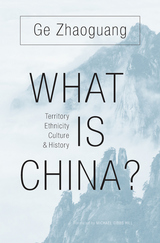
Ge Zhaoguang, an eminent historian of traditional China and a public intellectual, takes on fundamental questions that shape the domestic and international politics of the world’s most populous country and its second largest economy. What Is China? offers an insider’s account that addresses sensitive problems of Chinese identity and shows how modern scholarship about China—whether conducted in China, East Asia, or the West—has attempted to make sense of the country’s shifting territorial boundaries and its diversity of ethnic groups and cultures.
Ge considers, for example, the ancient concept of tianxia, or All-Under-Heaven, which assigned supremacy to the imperial court and lesser status to officials, citizens, tributary states, and tribal peoples. Does China’s government still operate with a belief in divine rule of All-Under-Heaven, or has it taken a different view of other actors, inside and outside its current borders? Responding both to Western theories of the nation-state and to Chinese intellectuals eager to promote “national learning,” Ge offers an insightful and erudite account of how China sees its place in the world. As he wrestles with complex historical and cultural forces guiding the inner workings of an often misunderstood nation, Ge also teases out many nuances of China’s encounter with the contemporary world, using China’s past to explain aspects of its present and to provide insight into various paths the nation might follow as the twenty-first century unfolds.
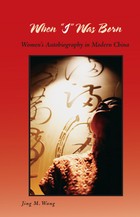
When “I” Was Born: Women’s Autobiography in Modern China reclaims the voices of these particular writers, voices that have been misinterpreted and overlooked for decades. Tracing women writers as they move from autobiographical fiction, often self-revelatory and personal, to explicit autobiographies that focused on women’s roles in public life, Jing M. Wang reveals the factors that propelled this literary movement, the roles that liberal translators and their renditions of Western life stories played, and the way in which these women writers redefined writing and gender in the stories they told. But Wang reveals another story as well: the evolving history and identity of women in modern Chinese society. When “I” Was Born adds to a growing body of important work in Chinese history and culture, women’s studies, and autobiography in a global context.
Writers discussed include Xie Bingying, Zhang Ailing, Yu Yinzi, Fei Pu, Lu Meiyen, Feng Heyi, Ye Qian, Bai Wei, Shi Wen, Fan Xiulin, Su Xuelin, and Lu Yin.

When the Yellow River Floods explores the relationship between environmental degradation, hydraulic engineering, and nation-building in the context of Liu E’s The Travels of Lao Can. This book provides a unique perspective on modern Chinese literary history that goes beyond conventional narratives that focus solely on political and cultural factors. The main areas covered include the role of water management in literary nation-building and the connections between the novel’s various themes, such as river engineering, medical and political discourses, national sentiment, and landscape description.
By offering a comprehensive analysis of The Travels of Lao Can, this book broadens the understanding of nation-building in early twentieth-century China, highlighting the impact of environmental crises and hydraulics on the formation of national literature and consciousness. When the Yellow River Floods provides a new perspective on the environmental roots of modern Chinese literature, making it an essential read for those seeking to understand the complex interplay between literature, the environment, and national identity in China. This book will be of interest to scholars and students of Chinese literature, history, and environmental studies.
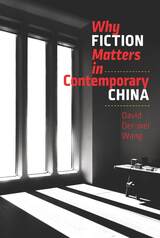
Contemporary discussions of China tend to focus on politics and economics, giving Chinese culture little if any attention. Why Fiction Matters in Contemporary China offers a corrective, revealing the crucial role that fiction plays in helping contemporary Chinese citizens understand themselves and their nation. Where history fails to address the consequences of man-made and natural atrocities, David Der-Wei Wang argues, fiction arises to bear witness to the immemorial and unforeseeable.
Beginning by examining President Xi Jinping’s call in 2013 to “tell the good China story,” Wang illuminates how contemporary Chinese cultural politics have taken a “fictional turn,” which can trace its genealogy to early modern times. He does so by addressing a series of discourses by critics within China, including Liang Qichao, Lu Xun, and Shen Congwen, as well as critics from the West such as Arendt, Benjamin, and Deleuze. Wang highlights the variety and vitality of fictional works from China as well as the larger Sinophone world, ranging from science fiction to political allegory, erotic escapade to utopia and dystopia. The result is an insightful account of contemporary China, one that affords countless new insights and avenues for understanding.
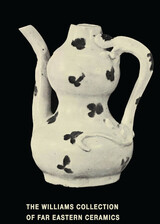

The Ming–Qing dynastic transition in seventeenth-century China was an epochal event that reverberated in Qing writings and beyond; political disorder was bound up with vibrant literary and cultural production. Women and National Trauma in Late Imperial Chinese Literature focuses on the discursive and imaginative space commanded by women. Encompassing writings by women and by men writing in a feminine voice or assuming a female identity, as well as writings that turn women into a signifier through which authors convey their lamentation, nostalgia, or moral questions for the fallen Ming, the book delves into the mentality of those who remembered or reflected on the dynastic transition, as well as those who reinvented its significance in later periods. It shows how history and literature intersect, how conceptions of gender mediate the experience and expression of political disorder.
Why and how are variations on themes related to gender boundaries, female virtues, vices, agency, and ethical dilemmas used to allegorize national destiny? In pursuing answers to these questions, Wai-yee Li explores how this multivalent presence of women in different genres provides a window into the emotional and psychological turmoil of the Ming–Qing transition and of subsequent moments of national trauma.

Working Mandarin for Beginners is designed to enable English-speaking business students and professionals with no prior knowledge of Chinese to develop the basic communication skills necessary for a business trip to China or another work environment in which Mandarin is spoken.
Major features: • Twenty-four lessons, including five review lessons • Clear objectives for acquiring language skills, grammar, and cultural understanding • Lessons cover important basics such as introductions and greetings, counting, reserving a hotel room, taking public transportation, and asking for directions • Lessons cover business tasks such as coordinating and conducting meetings, selling products, and negotiating agreements—all in Chinese • Lessons provide dialogues and vocabulary lists for reading and listening, language points, cultural points, pronunciation drills, grammar, and interactive homework • Course concludes with a special independent project in which the student applies the language to his or her area of business study • Pinyin is used throughout so students can start speaking Mandarin immediately • Includes some basic lessons in the formation of Chinese characters • Course can be combined with affordable online access to self-grading exercises (available through Quia.com, $24.95 per student for 18 months of access)
Student Book • Includes MP3 tracks of dialogues, vocabulary lists, and audio exercises on CD • Lessons are valuable to the classroom student as well as self-directed independent learners
Teacher's Edition • Includes a CD-ROM with all MP3 tracks of dialogues, vocabulary, and audio exercises found on the students' disk • CD-ROM also provides quizzes and exams (including necessary audio), approximately 300 supplementary PowerPoint slides for classroom use, and creative guidance for conversation practice, mini-immersion, and skit
Online teaching features at Quia.com • Instructor-managed class activities and exercises • Monitoring of student progress • Customized grading options online • Students can complete exercises online, submit their answers electronically to their instructor, and receive automatic feedback • Teachers can also use Quia templates to build their own exercises or use exercises developed by other instructors to provide added help for students • Motivated self-directed learners can also access the self-grading online exercises at Quia.com (no instructor feedback will be provided)
SYSTEM REQUIREMENTS
Student's Edition Textbook/MP3 CD (Mac and PC) • CD drive on a computer or conventional CD player with MP3 capability • MP3 player, such as iTunes, RealPlayer, or Windows Media Player • Speakers
Teacher's Edition Textbook/CD-ROM Mac and PC • CD drive on a computer • MP3 player, such as iTunes, RealPlayer, or Windows Media Player • speakers • Adobe Acrobat Reader (available as a free download from http:///www.adobe.com) PC • Windows XP • Microsoft Office 2000 or higher with Service Pack 3 installed (Word and PowerPoint are needed to view and edit some files) • Or, to view the PowerPoints only, download Microsoft PowerPoint Viewer 2003 or higher (free from http://www.microsoft.com) • Fonts for PowerPoints: Arial Unicode and Simsun, which are included in all editions of Office 2000/XP/2003 Mac • Microsoft Word, version Office 2004 or higher • Microsoft PowerPoint, version Office 2004 or higher (Word and PowerPoint are needed to view and edit some files); or view the PowerPoints as PDFs • Fonts for PowerPoints: Arial and Simsun, which are included in Office 2004 and higher
Interactive Exercises on Quia (Mac and PC) • Computer with Internet access, preferably a high-speed connection • Java-enabled browser: Internet Explorer 5 or higher, or any version of Firefox or Safari • The program QuickTime (available as a free download from http://www.quicktime.com) • Microphone to record answers or responses
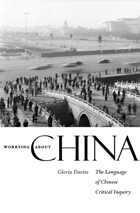
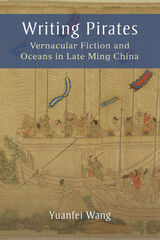
READERS
Browse our collection.
PUBLISHERS
See BiblioVault's publisher services.
STUDENT SERVICES
Files for college accessibility offices.
UChicago Accessibility Resources
home | accessibility | search | about | contact us
BiblioVault ® 2001 - 2024
The University of Chicago Press









